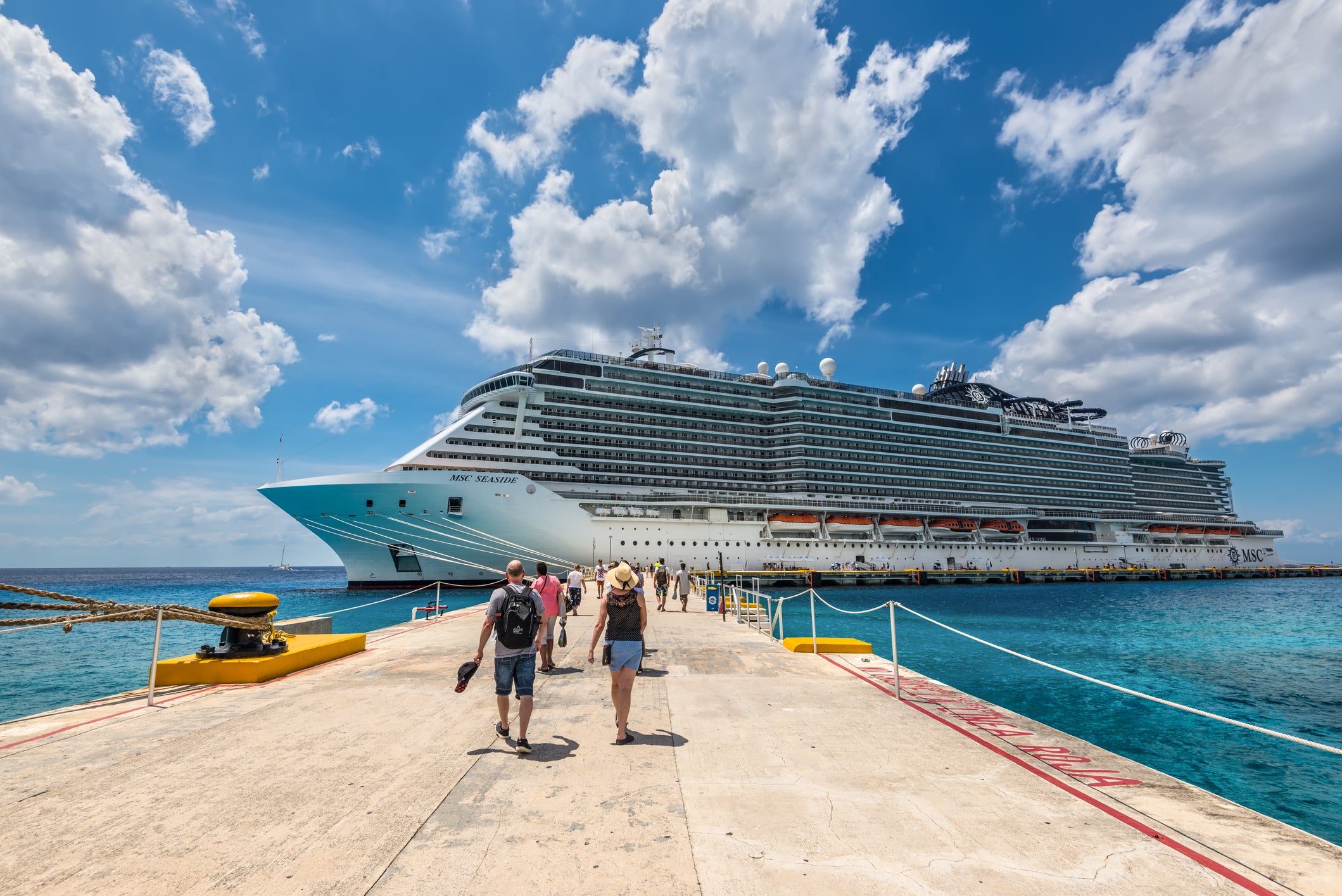Mexico holidays look set to get more expensive – but only for one type of tourist
Seafaring passengers will have to pay the $42 immigration tax to dock at Mexican ports

Mexico’s plan to charge cruise passengers a $42 (£33) immigration tax has landed the country in rocky waters with the cruise industry.
The lower house of Mexico’s Congress voted last week to charge every cruise passenger the almost $50 “Non-Resident Fee” to dock at Mexican ports.
According to the proposed legislation: “It is necessary to eliminate the exemption from immigration document payment for foreign passengers who enter Mexico aboard cruise ships.”
The new law aims to take effect in 2026 to tackle overtourism concerns on the Mexican coast.
Cruise passengers were previously exempt from immigration charges as they may not disembark the ship and usually sleep onboard.
Two-thirds of the funds raised from the immigration levy will reportedly be given to Mexico’s defence department rather than invested in improving tourism infrastructure and port facilities as part of a new budget law by the ruling party, Morena.
Local areas have voiced concerns the tax will "jeopardise" Mexico as a leading cruise destination if cruise lines reroute their itineraries to avoid paying the charge.
Economies depend heavily on the cruise industry in areas such as Costa Maya, Cabo San Lucas and Cozumel – the “cruise capital” of the world, which welcomes around four million passengers a year.
From 1 January 2025, guests on sailings to Quintana Roo – home to Costa Maya and Cozumel – will also have to pay a $5 fee to contribute to the National Disaster Prevention Fund under a regional law.
Generally, Mexico has charged non-resident tourist fees for holidaymakers staying over seven days – approximately £26 in 2024 – since 1999.
The Mexican Association of Shipping Agents called on the Senate to kill the measure, writing in a statement: “If this measure is implemented, it will make Mexican ports of call among the most expensive in the world, severely affecting their competitiveness with other Caribbean destinations.”
Major cruise lines including Carnival, Royal Caribbean and Norwegian have said that they oppose the tax, with Royal Caribbean’s “Perfect Day Mexico” project set for 2027 in Costa Maya under threat if Mexico enforces the tax.
The Florida Caribbean Cruise Association (FCCA), which represents 23 cruise lines, including Carnival Cruise Line and MSC Cruises, said in a letter: “Cruise lines are already actively considering significantly altering itineraries, which would reduce the more than 10 million passengers and 3,300 cruise ship arrivals expected to visit Mexico in 2025.”
“This proposed tax could also jeopardise the cruise industry’s investments in the country, including billions in planned developments and other projects,” the FCCA added.
The Senate will continue to debate the tax this week.
For more travel news and advice, listen to Simon Calder’s podcast
Join our commenting forum
Join thought-provoking conversations, follow other Independent readers and see their replies
Comments
Bookmark popover
Removed from bookmarks